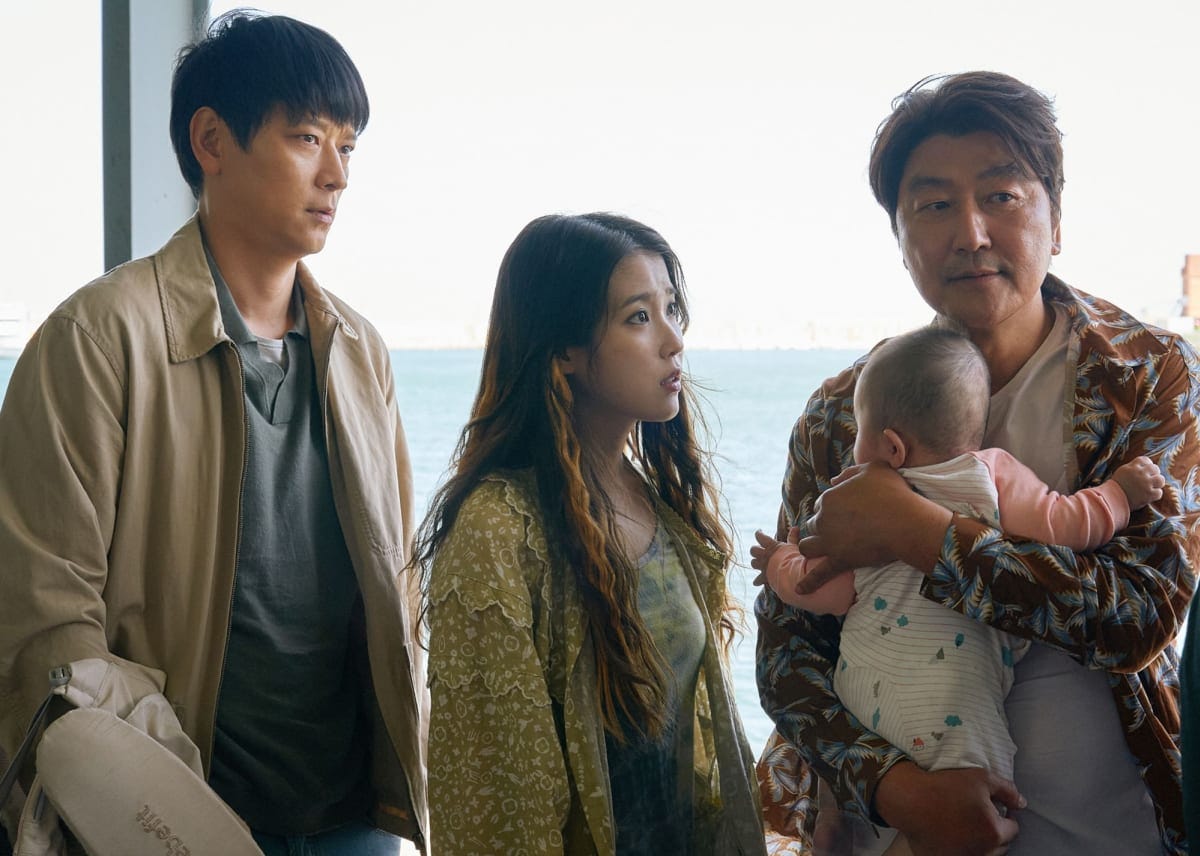Broker
This unapologetically sentimental drama from Korea by way of Japanese director Hirokazu Koreeda follows some surprisingly sympathetic baby merchants and the cops on their tail.
“We're more like brokers than they are.”
This nugget of insight comes from Sarge (Bae Doona), the older of two police detectives following around a group of people looking to sell a baby on the black market. Through a combination of ineptitude, sympathy for the tyke and just plain bad luck, the deals keep falling through and the cops have to take increasingly aggressive measures to see that the sale happens so they can make the arrest.
She and her younger companion (Lee Joo-young) have spent weeks living out of their car while casing and tailing the miscreants. They’re tired and stinky, and eventually start putting their finger on the scales of justice to hurry things along. The baby brokers keep bumbling, and things go on from there.
If this sounds like a tense crime drama, it’s not. “Broker” is an unapologetically sentimental story in which there are no bad guys — not even the two infant-sellers who snatched him away from baby box at a church, or the jaded young mother who abandoned him there. If anything, they become something like heroes as they travel around and form their own little ad-hoc family unit.
It’s written and directed by Japanese director Hirokazu Koreeda, who made the absolutely wonderful “Shoplifters” a few years ago, one of my favorite foreign films of recent vintage. “Broker” is actually in Korean and stars Song Kang-ho, best known for playing the father in “Parasite,” which won a slew of awards including the Best Picture Academy Award. I thought it a fairly obvious (and inferior) imitation of “Shoplifters.”
Maybe Koreeda decided to join in the party rather than be miffed at the “Shoplifters” theft. “Broker” exists as a sort of companion piece to those other two films, as people engaged in criminal endeavors are fully humanized through the challenges faced together as a family unit.
Song plays Sang-hyeon, who runs a run-down little laundry shop and owes a bunch of money to the local mobsters in Busan. To get by he runs an occasional scam with Dong-soo (Gang Dong-won), the young man who works the night shift at the church. They have one of those safe boxes for people to leave unwanted babies without risking criminal charges.
If a suitable candidate is dropped, Dong erases the video tape monitor and they find couples who want to find a baby on the black market. The going price is 10 million Korean won, or about $8,000.
Clearly, they’re not in this to get rich. They won’t sell to just anybody, screening the prospective parents to make sure they’re suitable. Dong was an orphan himself who was never adopted, and he uses some of the money he gets to help out his old orphanage, where he’s treated as a living legend whenever he drops by.
When a little guy named Woo-sung is left, the duo think they have another easy score on their hands. But things grow complicated when the mother, So-young (Lee Ji-eun), turns up and insists upon accompanying the men on their excursion to find a suitable buyer. She had left a note with the baby promising to return one day, but hardly anyone ever does.
So is jaded and stubborn. She does not act in any kind of maternal way toward Woo-sung, leaving the cuddling and feeding duties to Dong and Sang, who become increasingly attached to the little guy. Not enough to want to keep him themselves, but it underscores their desire to find him a truly good family.
When Hae-jin (Im Seung-soo), a spunky kid from the orphanage stows away in Sang’s laundry truck, it truly becomes a road trip story. They ride around from town to town, subtly sabotaging the potential purchases so things will keep going as they are. They stay in crummy hotels and eat cheap meals, and even share a joyful excursion to a carnival.
They become a family in everything but name.
Meanwhile, the story keeps cutting back to the cops following them, who act as a reminder that the group is committing a heinous crime, even if it is with good intensions, and things will not end in a happy place.
The main enjoyment in “Broker” is watching the actors channel their characters, each with their individual hang-ups and challenges, into a collaborative effort and grow the bonds between them. These anything-but-heartless criminals form their own familial bonds, and in a strange way the police become part of the clan.
Despite their criminal association, Dong and Sang seem to hardly know each other, and truly become best friends during their trek. You won’t be surprised that some moony glances pass between Dong and So. Hae acts as the adorable glue that helps connect them, a relentlessly cheerful kid who’s determined to find a family even if he has to create it on the fly.
Sang might ostensibly seem like the father figure, but in some ways he’s even more innocent and childlike than Hae. The longest and hardest journey is for So, who’s seen untold pain and abuse in her life and is trying to do right by Woo-sung without getting too attached, and risk spreading her dark troubles to him.
I don’t think “Broker” is on par with “Shoplifters,” but it’s an uplifting tale leavened with notes of regret and longing. Family truly is where you find it.



